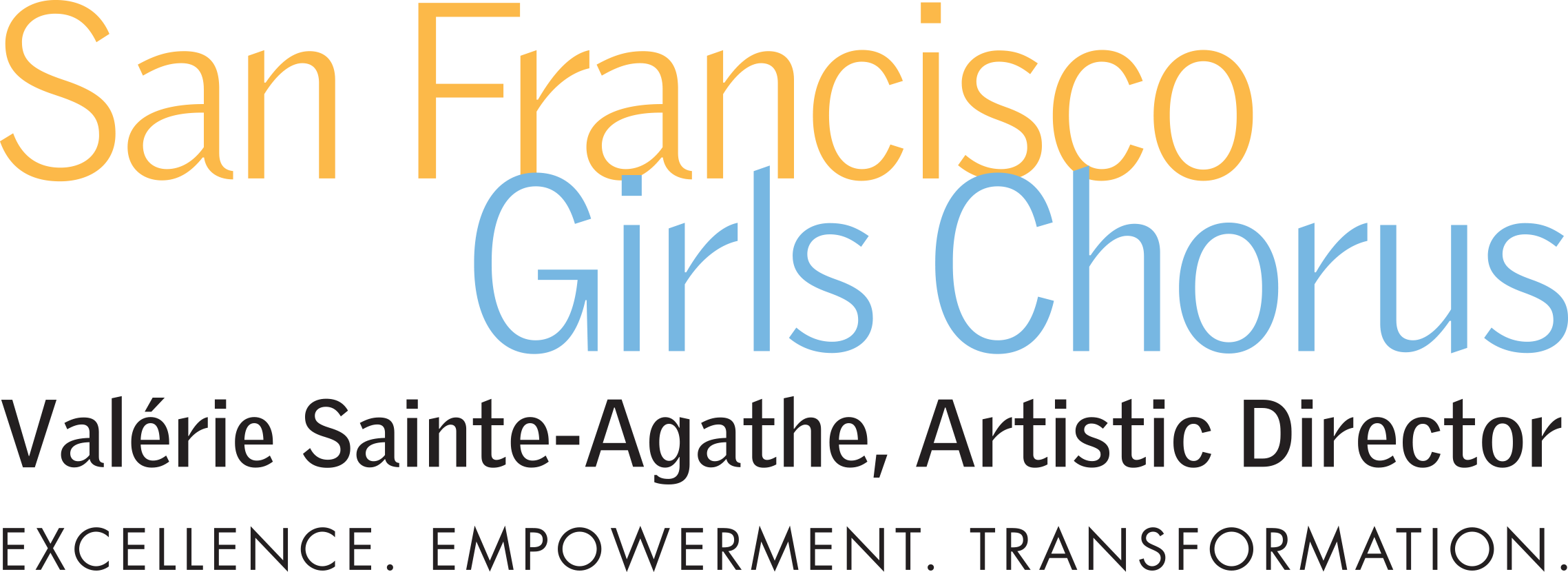First Crush
Dear SF Girls Chorus Community, In the summer of 2013, The New York Times ran a series of articles in which arts critics described their “cultural first crushes”—the artists, works, moments and epiphanies that hooked them and set them on their career paths—be it classical music, visual arts, television, dance, pop music or even video games. For the classical music “first crush” article, The New York Times chief music critic Anthony Tommasini wrote about his “eureka” moments, some of which are: his first toy piano, live performances, a fifth grade music teacher who took him to his first opera, and listening to recordings in his basement den. The New York Times encouraged readers who worked in classical music to write about their own classical music “first crush” in the article’s comments section, so I wrote a short blurb which they ended up publishing along with six others which you can read here(mine is the last one).
Do you have a first memory—a “eureka” moment—when you realized you needed to sing? To play an instrument? To participate in the arts?
I’ve been thinking a lot lately about the New York Times article and my response, and the ways in which I was destined for a career in music administration. Some of my earliest memories are of attending operas at Scottish Opera—I couldn’t have been more than 4 or 5 years old and I was spellbound by the singing and the drama. My mother tells the story of when she took me to the ballet and I asked her when they were going to start singing because it didn’t seem right to my younger self to be silent on stage! We moved to San Francisco when I was 8 and I immediately joined the San Francisco Girls Chorus—an incredibly formative musical experience where I was fortunate to receive a world-class music education which included singing in several operas with San Francisco Opera.

Another “first crush” memory took place in San Francisco University High School’s class Western Civilization: A History of the Arts where I heard a movement of Palestrina’s Missa Papae Marcelli for the first time. I couldn’t believe I’d lived all my life without knowing that music—it is perfection itself and it’s my favorite piece to this day. I even helped program several movements from it at the San Francisco Symphony when I worked there as Chorus Manager. Listen to the Tallis Scholars recording from 2007, which is a cappella choral music bliss.
Do you remember hearing your favorite piece for the first time? Do you feel the same way about it now as you did then?
I didn’t seriously consider a career in the arts until after college. In fact, I studied Psychology and Philosophy as an undergraduate and was in the middle of the Psychology PhD program at Stanford (doing fMRI research on emotion regulation and scanning peoples’ brains—including my own!) when I realized that music was missing from my life in a huge way.

I sang in choirs through college and graduate school but it wasn’t enough. I needed to be surrounded by music, to be instrumental in making music happen and to give back to the community and the world through the arts. In many ways, this was my most important “a-ha!” moment, although at the time it was daunting and scary to make the transition from science to the arts!
It is important to me that my work in the arts makes a difference, so I am drawn to music education and community programs in particular. I’m aware that growing up with a parent who is a professional musician (Ian Robertson is the Chorus Director at SF Opera and Artistic Director of the SF Boys Chorus) afforded me opportunities and insights to the arts that many people don’t have, and in many ways I feel a responsibility to share not only the wonderment that is classical music (particularly choral music for me) but also the myriad benefits that a music education provides. After leaving graduate school I started working at the San Francisco Boys Chorus where I managed the music education program and also worked with choristers who were recipients of the Willie L. Brown Jr. Music Scholarship for Boys—we visited schools in underserved areas in San Francisco to discover talented young singers who might not otherwise have self-identified as choral musicians and provided those choristers with full scholarships to the Chorus. I also helped to organize a benefit concert for the victims of the Haiti Earthquake featuring several Bay Area choruses and wonderful mezzo-soprano soloist Frederica von Stade (who appears with SFGC at our annual Gala next week!)
How have the arts helped you give back to your community? Are there ways in which you could give back now?
After I worked at SFBC, and before I started working at SFGC, I was Chorus Manager at San Francisco Symphony for four years. SF Symphony has a vibrant music education program that reaches many children in San Francisco and recently began an adult arts education program called Community of Music Makers, which encourages amateur singers and instrumentalists to pick up their voices and instruments and attend a workshop led by Symphony musicians on stage at Davies Symphony Hall. They get to sing and play on stage, to see and to feel what it’s like to perform there—what a fun and eye-opening experience! I served on the committee for Community of Music Makers, and I know several people who have joined a choir or started practicing their instrument again after having attended a workshop.
Do you have an old instrument lying around that you haven’t played or practiced for years? What would it take to get you to start again?
Sincerely yours,
Elaine Robertson Director of Production and Artistic Administration San Francisco Girls Chorus
